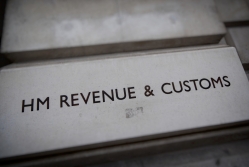 HM Revenue and Customs has officially launched online Personal Tax Accounts and all SMEs will have their own accounts by April 2016.
HM Revenue and Customs has officially launched online Personal Tax Accounts and all SMEs will have their own accounts by April 2016.
The new HMRC accounts will allow people to see their tax details and make payments at any time. All UK small businesses, as well as personal tax payers, will have Personal Tax Accounts (PTAs) by April 2016.
A key advantage of the new digital tax accounts, according to the Government, is that they will stop the build up of tax due or refunds owed. It also says that the online service will make it easier to contact HMRC officials through services like web chat and virtual assistant.
Two million businesses are already using the new system. HMRC's aim is that by 2020 the new digital accounts will encompass all taxpayers, individual and corporate.
Before tax returns become redundant, however, businesses and the self-employed will have to update HMRC every quarter from April 2018, a significant shift from the current system of annual returns. This particular reform has been widely criticised by business groups and financial advisers.
Chas Roy-Chowdhury, of the Association of Chartered Certified Accountants (ACCA), has described it as "onerous".
John Allan, national chairman of the Federation of Small Businesses (FSB), said: "Adding more reporting appears out of step with wider Government attempts to reduce the regulatory burden and to streamline tax arrangements. Members already spend on average £3,600 completing their tax returns, with many still completing theirs manually."
He added: "We … want to see proper consultation with business groups and professional bodies, a clear statement of benefits to the business community and a package of support to help offset this new burden on business. The push towards digital must be introduced alongside tax simplification."
